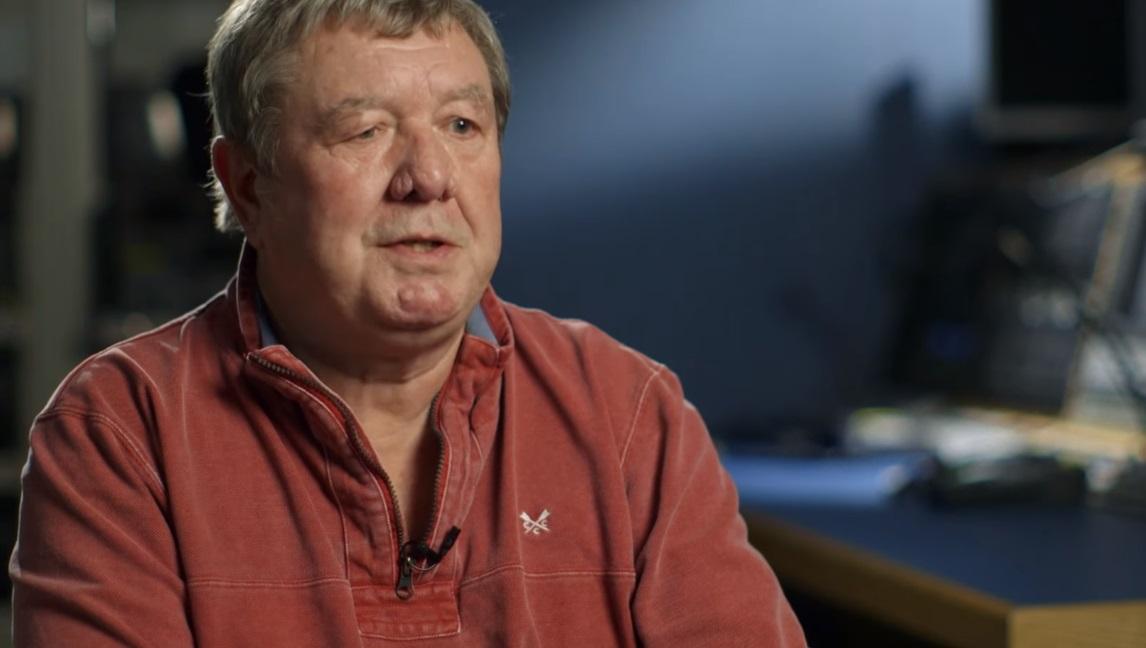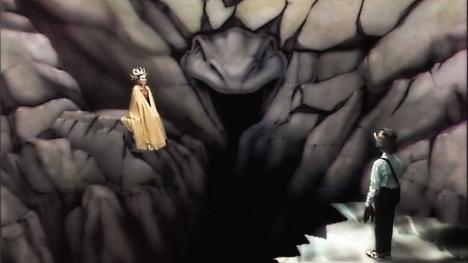An interview with Knightmare creator Tim Child, who answered questions raised in the Knightmare Forum and presented to him by Kieran O'Brien.
Q1. When you created Knightmare, did you have any specific message you wanted to send to children through your show?
No. I'm not much for messages. You either like gaming or you don't. There are some great fantasy worlds out there in literature: Narnia, Middle Earth, Disc World, and Philip Pullman's Parallel Universes, but you cannot interact with them personally.
My ambition was to create and populate one with which you could, and through that interaction, make it self-sustaining. On the way, it adopted and fed on elements of political and social parody, as most fantasies (with the exception of Doctor Who) are inclined to do, and (I believe) benefit from.
Knightmare began in Thatcher's Britain, quickly satirising its values. Surely most of you recognised Margaret T's occasional guest appearances and utterances?
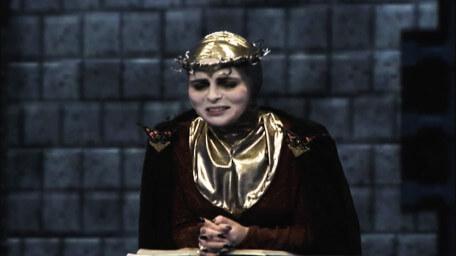
Then came the beginnings of the technical revolution, so in response Lord F became the Technomancer - a gadget freak - with boundless enthusiasm, but little foreknowledge of the effects of dabbling with new technology.
What a shame Knightmare ended in '94. What fun we would have had with New Labour!
Q2. Were you happy with the general progression of Knightmare through the first 8 seasons? Is there anything you had in mind, yet never got the chance to do?
I was always disappointed with the animation elements because they clashed in visual grammar with the live action side of the show. It's one of the problems of doing leading edge stuff.
There's always the risk of being too ambitious for the technology or the budget.
Q3. knightmare.com has been going 5 years now. With the Discussion Forum reaching nearly 500 members, does this large fan base surprise you? Did you ever expect Knightmare to reach this cult status?
Never, but I think with the aid of hindsight I can guess why. Magic, fantasy and role-playing is pivotal to most childhoods. It's also something that many adolescents or post adolescents want to cling to.
Nowadays there are huge socio-economic pressures which tend to force young people to abandon their childhood before it's even got into the swing.
Q4. From the original 8 seasons, which is your favourite?
Probably 6, 7 & 8. Despite everything that's been said about the early stuff, truth be told it was terribly slow.
Also by Series 5 we'd refined methods to ensure that only suitable teams made it as far as the game. By roleplay testing them during the auditions, we pretty much knew what we were getting.
Q5. Out of all the characters you created, who was your favourite?
Lord Fear and Sly Hands, for quite different reasons.
I think every fantasy world has to have a great villain - otherwise you are never going to get any good heroes. Sly has a surprise. Most of the regular cast had a main character and a secondary character.
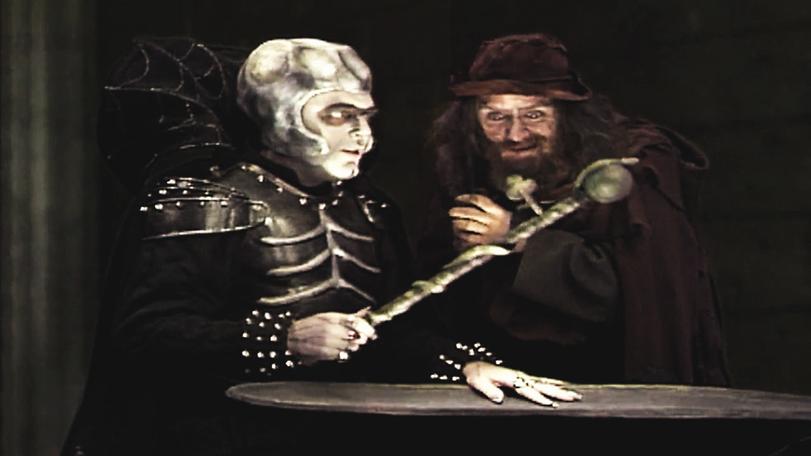
Paul's main one was Motley, but none of the other things I tried for him seemed to work. Then I wrote Sly, and Paul took him away from me and turned him into something else. After that, Sly (like Lord F) pretty much wrote himself.
Q6. Sight potions/spells - were they actually essential to complete the room that they were used in, or were it just to add some magic to the show?
It varied. There needs to be good underlying game logic present in any quest, but sometimes I allowed for redundant potions, mainly because I didn't want to allow the tasks to get too linear and thus predictable.
Q7. No team managed to win in Season 1 and 3. Can you recall how a winning quest would have looked like for those years?
I honestly don't remember. In the early years I plotted adventures (together with all their branch and loop options) from beginning to end. Any bits that were not used were just thrown away. At no time did I 'pass on' unused adventure plans/scripts from one series to the next. Scenes and characters - yes, but plots, never.
As described in the history, this early practice led to massive wastage, hence the eventual decision to configure the dungeon into three levels, with no clues/spells etc allowed to be carried from level to level. This meant that we worked through the plots in a progressive fashion, picking up the next level 2 plan as a team had completed the last level one. This was much better for the cast who had to learn a lot of lines and scenarios very quickly.
So typically, the 4th team starting in a series, would begin with level 1 / game 4 (1/4). On completion they might move to level 2 / game 3 (2/3) reflecting the fact that one of the previous teams in that series had died at the end of their level one. On completing level 2, this fourth team in quest would then transit to game plan 3/1, reflecting the fact that they might be the first team to reach the lowest level in that season.
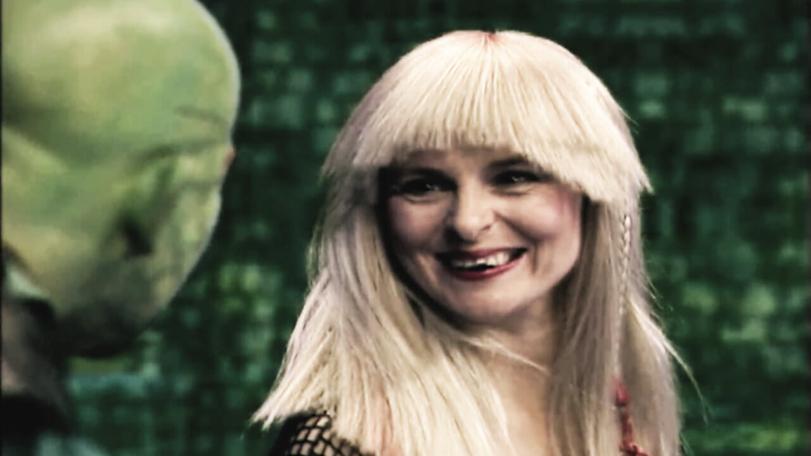
When a team in quest completed a level, they usually experienced a game break of about an hour. This was to allow us to customise and record Lord F's next subplot, which would be played in through the spyglass in the first clue room they encountered.
In his level one sub-plots, the dungeoneer and friends were never referred to by name, because they could have been any anonymous team, but by level 2 they were known, and Lord F and his minions were starting to treat them as a personal threat.
When it was possible, at this point to refer back to incidents in the recently completed level 1, we would do so, as it helped to build a continuous narrative, whereas in truth we were just bolting together sections of game plan.
A small note: to avoid confusing the cast, the individual game plans were colour coded. All the level ones were buff; level twos were always blue, and threes were green I think.
Q8. How advanced were plans for the 9th season in 1995? Any plans you can share?
They weren't advanced at all.
Q9. We have been hearing about TimeGate for a few years, are plans still going smoothly for that, and indeed are there any plans you can share here?
As you have probably guessed, TimeGate has had to be sidelined for the time being while our available resources concentrate on finishing the Knightmare demonstrator. We received 8 months' Lottery/Film Council funding for this, and it has to be ready in March.
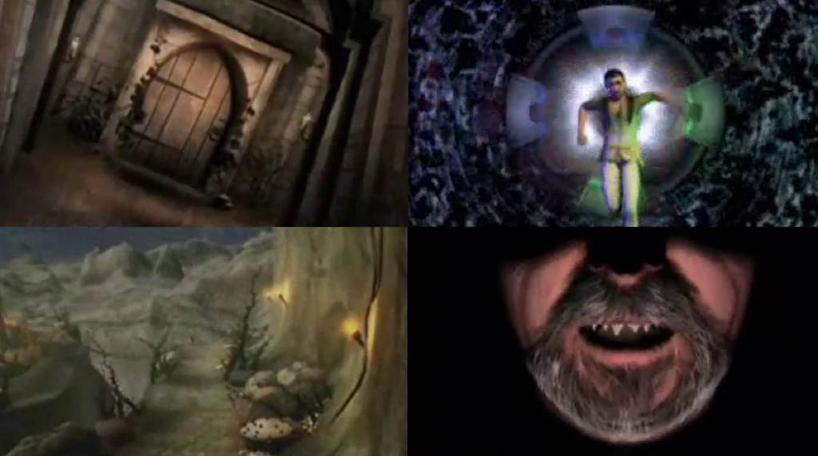
It is best to continue to think of TimeGate as an adult fantasy adventure game with larger virtual world. If the Knightmare demonstrator works, then TimeGate will also work as it uses the same software engine.
Q10. There has been a large gap between the old and new seasons. So why have you chosen now to bring it back?
Truth be told - I probably never intended to bring it back. But the Knightmare fans just kept plugging and nagging away, so you've only yourselves to blame/thank if it happens.
Q11. Can you recall who played characters/creatures such as goblins and random maids, etc? Were they Knightmare cast members? (i.e. Had another role in Knightmare).
The goblins were played by a couple of Norwich-based girl dancers who became good friends with the regular cast. They also played random maids/cavernwights, mermen, etc.
Q12. Why was the original life force animation changed? And please settle this long debate - Series 8, a pie or a cake?
It was supposed to be pie. The big problem with all the life force indicators is that they were linear animated sequences, i.e. start to finish, whereas what we really needed was one that operated as a real time sequence: winding down clock-like when the team took too long, or taking an instant hit for damage, etc.
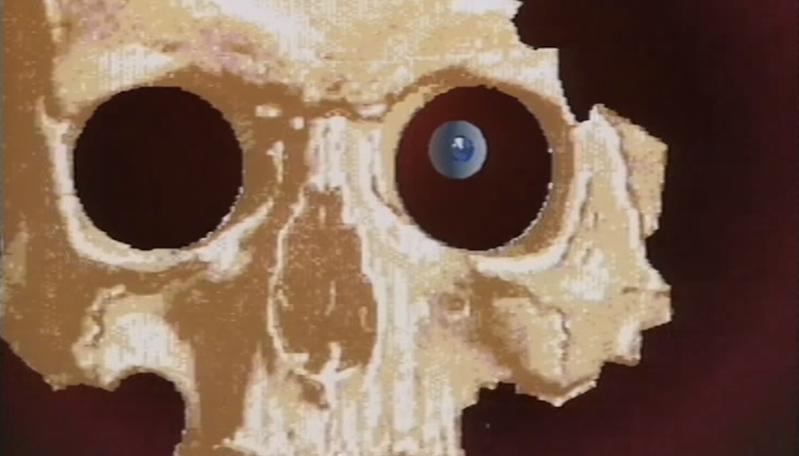
Graphic wise, the first was the best, but it was also the most limited for reasons explained.
Q13. In 1986 the pilot episode of Knightmare, 'Dungeon Doom' was made. Does this still exist? Is there any chance of the fan base one day being able to view it?
I am going to make a sequence into a Windows Media File trailer, and let the site have it as a download - might be a nice feature for the anniversary. Also we will do the same thing for the US pilot - 'Lords of the Game'.
I have an original Merman's head available as a prize if you want to run a competition.
Q14. Could in-game characters hear the advisor panel talking at all?
Of course they could. All advisers were miked and all channels patched through to the dungeoneers ear-piece.
Q15. Any particular incident/happening you can recall during filming for any of the seasons?
I remember complaining to Rayner Boughton (Julius Scaramonger) that he was handing over the desired object too soon. The next encounter went on and on for ever, and we were forced to do major editing. There were many incidents, most of them well recorded.
Q16. Final question. Would you say the demise of the original Knightmare was perhaps a little 'unfair' going on the reasons given for its axing by CITV chiefs?
This is well documented. Knightmare ended largely because of a misunderstanding. Whether or not this was a good thing I cannot say.
Thank you to everyone who contributed questions, and thank you to Tim Child.
